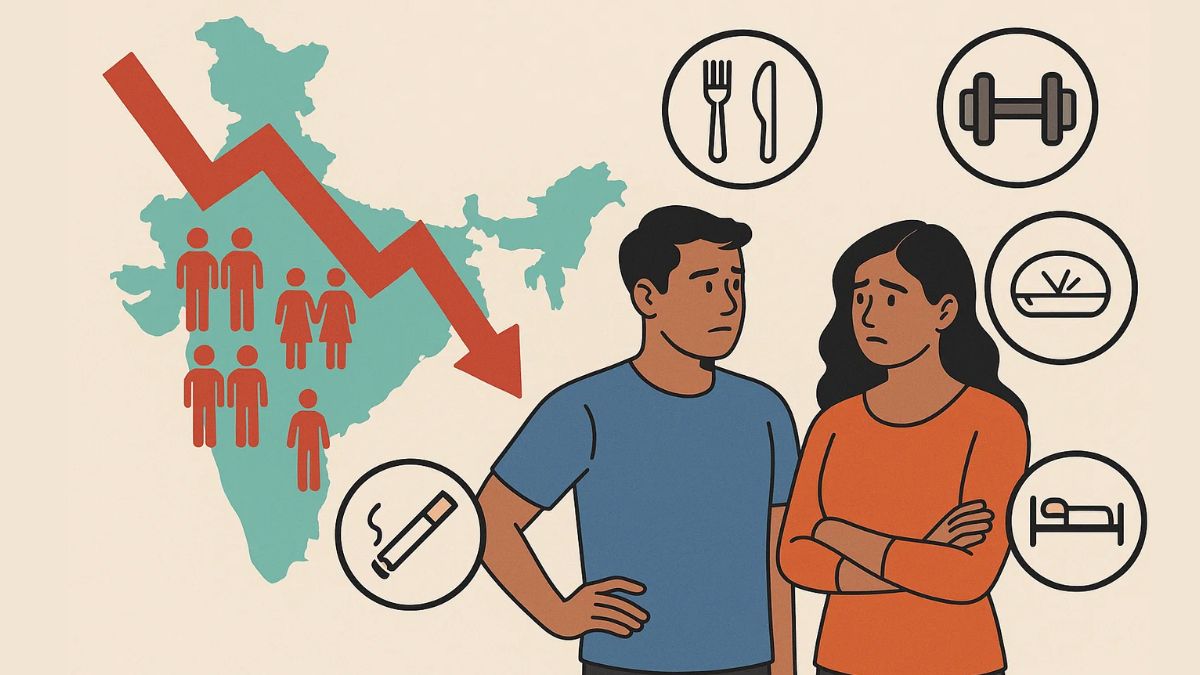SA Couples Concerned? India's Fertility Rate Plummets – What Can You Do to Boost Your Reproductive Health?

Recent reports show India's fertility rate has dipped below the replacement level, sparking concerns across South Africa about declining birth rates and potential long-term societal impacts. While cultural and economic factors contribute, experts increasingly highlight the crucial role of lifestyle choices in reproductive health. This isn't just an Indian issue; it's a global trend, and understanding the factors at play can empower South African couples to proactively improve their chances of conception.
Why is Fertility Declining? Several elements are converging to contribute to lower fertility rates. Delayed parenthood, increased female participation in the workforce, urbanization, and access to contraception all play a role. However, a growing body of research points to the significant impact of lifestyle factors.
The Lifestyle-Fertility Connection: What the Doctors Say It's no longer enough to just *want* to have a baby. A holistic approach to health is essential. Here’s what medical professionals are recommending:
- Diet is Key: A balanced diet rich in fruits, vegetables, whole grains, and lean protein is paramount. Avoid processed foods, sugary drinks, and excessive caffeine. Consider incorporating foods rich in folate, antioxidants, and omega-3 fatty acids, all beneficial for reproductive health. Specifically, for women, ensuring adequate iron intake is crucial.
- Manage Your Weight: Both being underweight and overweight can negatively impact fertility. Maintaining a healthy BMI through diet and exercise is vital. Polycystic ovary syndrome (PCOS), a common hormonal disorder, is often linked to weight issues and can significantly affect ovulation.
- Exercise Regularly (But Don’t Overdo It): Moderate exercise is beneficial for overall health and can improve fertility. However, excessive, high-intensity exercise can disrupt hormonal balance, particularly in women.
- Stress Management: Chronic stress can wreak havoc on your hormones, impacting ovulation in women and sperm production in men. Find healthy ways to manage stress, such as yoga, meditation, spending time in nature, or pursuing hobbies.
- Limit Alcohol and Quit Smoking: Alcohol consumption and smoking have been consistently linked to decreased fertility in both men and women. Quitting smoking and limiting alcohol intake are crucial steps.
- Reduce Exposure to Environmental Toxins: Exposure to certain chemicals and pollutants can negatively affect reproductive health. Be mindful of products you use (cosmetics, cleaning supplies) and try to minimize exposure.
- Prioritize Sleep: Lack of sleep can disrupt hormone regulation and impact fertility. Aim for 7-8 hours of quality sleep each night.
For Men: Specific Considerations Men also have a vital role to play. Maintaining a healthy weight, avoiding smoking and excessive alcohol, and managing stress are all crucial. Additionally, wearing loose-fitting underwear and avoiding prolonged heat exposure to the testicles can help maintain optimal sperm health.
Seeking Professional Advice If you're struggling to conceive, don't hesitate to consult a fertility specialist. Early intervention can often significantly improve your chances of success. They can assess your individual circumstances, identify any underlying issues, and recommend personalized treatment options.
The declining fertility rate is a complex issue, but by adopting a healthy lifestyle and seeking professional guidance when needed, South African couples can proactively support their reproductive health and increase their chances of building their families. It's time to take control and prioritize your well-being!






